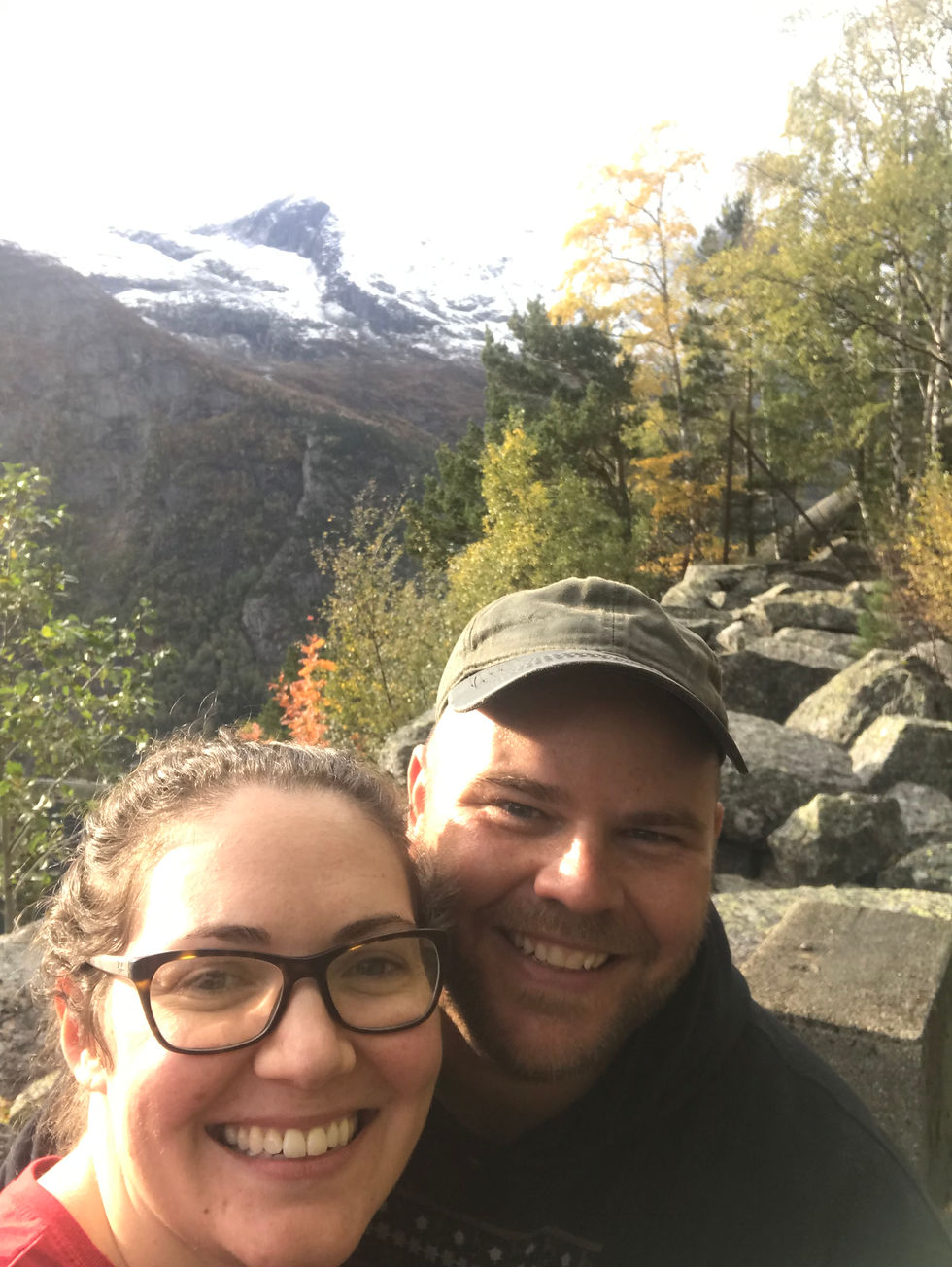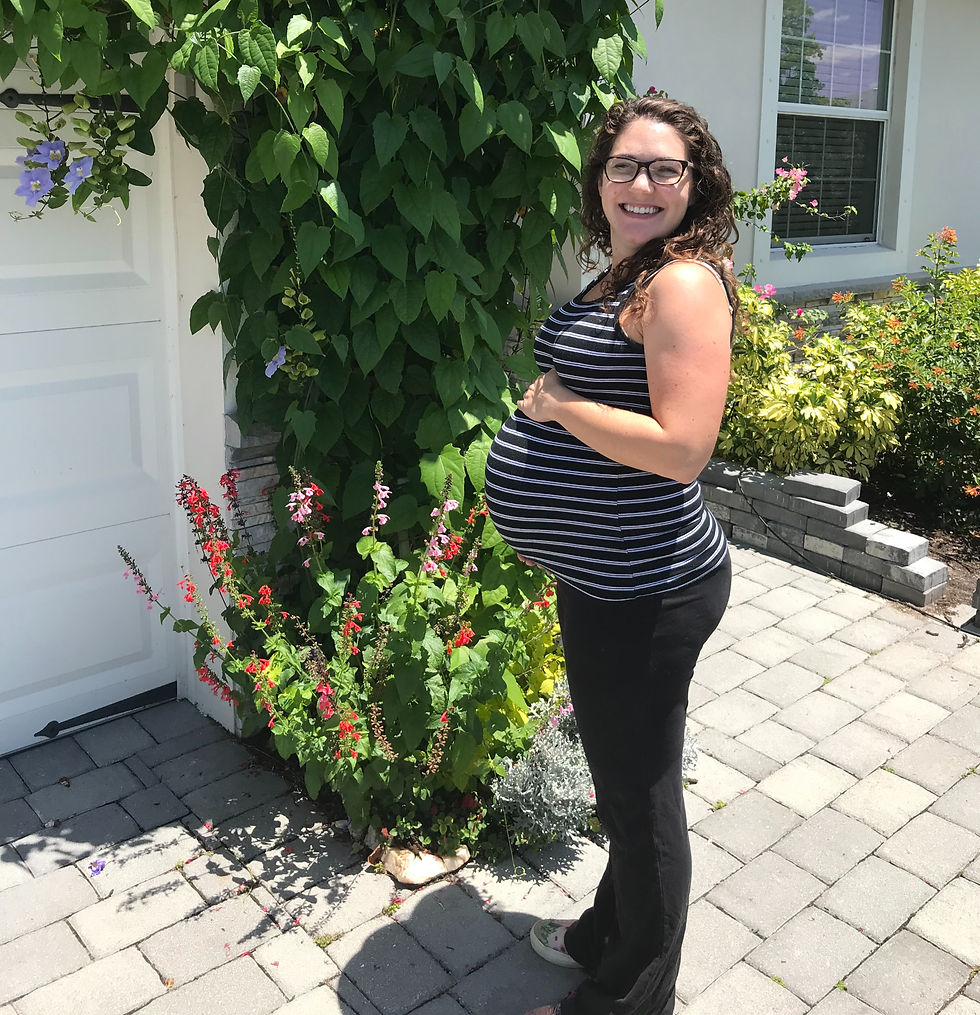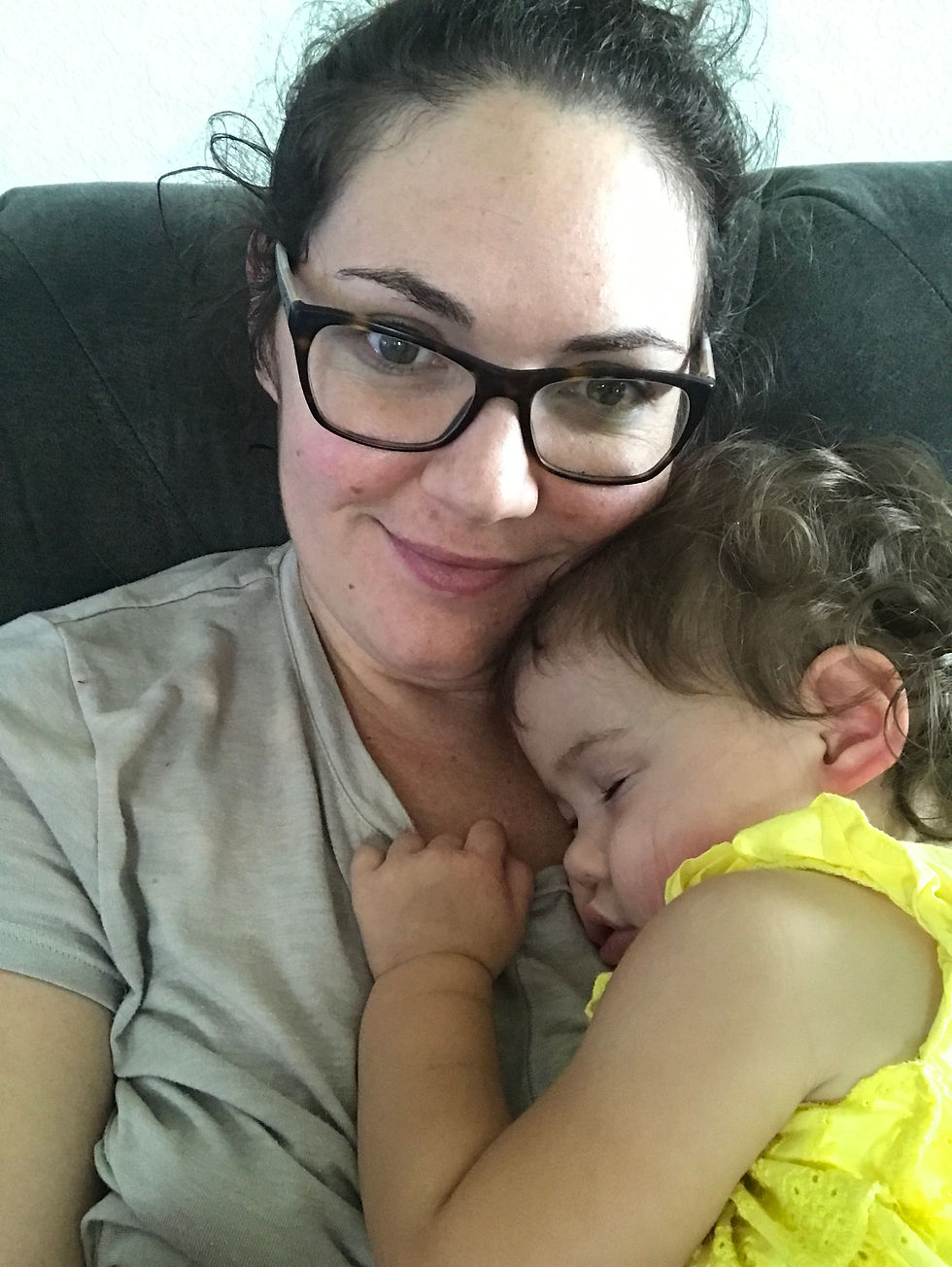PCOS, Anxiety, and Nutrition: Her Journey to Understanding and Managing Symptoms
At 21 years old, Meggie Connelly held a letter from her doctor, its words changing everything. She had just returned from watching Juno, a film about an unplanned teenage pregnancy. Hours earlier, she had felt certain that if she ever got pregnant, she would be okay with it.
But the words on the paper in her hands shattered that belief. She had PCOS, and the diagnosis came with a warning—she might never be able to have children. Overcome with emotion, she began to cry. "I had just emotionally accepted the idea that I could get pregnant, and then I received a diagnosis that made me question that possibility."
Polycystic ovary syndrome (PCOS) affects millions worldwide, yet many struggle for years without a proper diagnosis. For Meggie, a registered dietitian nutritionist, her experience with PCOS not only shaped her personal health journey but also led her to a career dedicated to helping others navigate the condition.

PCOS Anxiety: "I Didn’t Realize My Symptoms Were Connected"
Meggie’s first symptoms of PCOS appeared in childhood, though she wouldn’t understand them for years. "My symptoms started when I was really young. I got my period when I was, I think, 11. Then I started developing acne—really bad acne—around the same time," she recalls.

"That went through elementary school, middle school, and I was put on birth control really early, at age 12 or 13, to help control the acne."
Despite the treatments, her struggles continued. "I was on Accutane for two and a half years. That was traumatic because you had to get a pregnancy test every month, and I wasn’t even sexually active at 15," she says.
"I’ve actually always had anxiety. I just didn’t know that it was related to my PCOS. There’s a big correlation."
Another symptom that began in childhood was hirsutism, or excess body hair growth. "That’s really hard when you’re a teenager and you live in Florida and you want to wear a bikini all the time," she says.
At the time, Meggie didn’t know that anxiety could also be linked to PCOS. "I’ve actually always had anxiety. I just didn’t know that it was related to my PCOS. There’s a big correlation," she explains.
Numerous studies have found that people with PCOS are three times as likely to report anxiety symptoms as those without the condition.
Additionally, her early use of birth control seemed to muddle the understanding of her condition. "I didn’t know I had an irregular period because I was put on birth control at a really young age," she says.
A Delayed Diagnosis: "I Had No Idea This Was PCOS"
It wasn’t until college that Meggie was diagnosed with PCOS, and even then, the process felt like an afterthought.
“I only got diagnosed because my two older sisters were diagnosed. They said, ‘Hey, you should probably get checked out because we have it,’” she explains. “So I went and got tested, had the pelvic ultrasound, and for those that have had that, it’s kind of traumatic. It’s not comfortable.”

The results confirmed PCOS. “They didn’t even have to do the lab tests to know my testosterone was high, because I had a lot of signs—excess hair growth, acne. So I was diagnosed and told to stay on birth control,” she says.
Her doctor provided little information about the long-term impact of PCOS. “The OB said, ‘Just come back when you want to get pregnant.’ And that was it,” she recalls. “I didn’t know it increased my risk for diabetes and other metabolic conditions. I didn’t know that the anxiety I was experiencing was connected. No one explained any of that to me.”
Struggles with Healthcare: "No One Connected the Dots"
Throughout her 20s, Meggie’s symptoms fluctuated, but comprehensive care was hard to find.
“I think the most frustrating part about having PCOS is that our symptoms affect all these different medical disciplines—dermatology, gynecology, psychology, even your primary care—but no one connects them together,” she says.
"Wait—you’re telling me there’s something I can do about this?"
Each time she sought help, she was met with dismissive responses. “I’d go to a dermatologist because your hair was falling out, and they’d say, ‘You should be happy that you have this much hair.’ Or you go to an endocrinologist, and after waiting three months and paying out of pocket, and told, ‘Just do two long runs a month.’ Or, ‘You don’t have PCOS because you’re not obese,’” she recalls.
Without proper guidance from doctors, Meggie had to take control of her own health. “When I was in one of my medical nutrition therapy classes, they talked about PCOS, and I was like, ‘Wait—you’re telling me there’s something I can do about this?’” she says. “I had never even heard that nutrition and PCOS were related.”
Managing PCOS: A Holistic Approach to Health
Understanding the role of nutrition, exercise, sleep, and stress management transformed the way Meggie approached her condition.
“ I prioritize sleep, and I don’t feel guilty about it. I get eight and a half to nine hours every night.”
“I started focusing on high-fiber foods—fruits, veggies, whole grains, nuts, and seeds. I make sure my meals and snacks have enough protein to keep me full and stabilize blood sugar,” she says. “I also learned that movement is huge. Your muscles act like a sponge for glucose, so strength training and walking help lower blood sugar.”
She also emphasizes stress management. “My PCOS symptoms get worse when I’m stressed,” she explains. “I prioritize sleep, and I don’t feel guilty about it. I get eight and a half to nine hours every night.”
PCOS and Pregnancy: Overcoming Fertility Challenges
Despite being told early on that pregnancy might be difficult, Meggie conceived naturally.

“I took about a year to get myself in the best health possible before trying. I lost about 5% of my body weight—not focusing on weight loss, but focusing on health,” she says. “I conceived naturally and didn’t have any complications, no gestational diabetes, just some really bad heartburn.”
Managing PCOS during pregnancy required adjustments. “I kept exercising—strength training, prenatal yoga, walking. It really helped with blood sugar regulation,” she says.
Words of Advice: "You Are Not Alone"
For those newly diagnosed or struggling with PCOS, Meggie offers these words of encouragement:
“You didn’t cause this. PCOS is not your fault,” she says. “Unfortunately, we often feel blamed when doctors only tell us to lose weight. But this is an endocrine disorder with metabolic consequences—it’s not just about weight.”

She also urges patients to advocate for themselves. “Don’t discount your symptoms. Find a doctor who listens. And build a healthcare team—a gynecologist, an endocrinologist, a dermatologist, a dietitian. PCOS isn’t just about one thing; it affects everything,” she says.
Most importantly, she wants others to know that there is always hope, and they are not alone in this journey. “You can still get pregnant. You can still live a full life. There are so many things you can do to improve your symptoms and feel better,” she says. “You’re not alone in this.”
.png)





